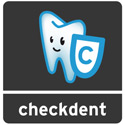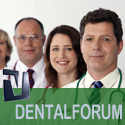Today the dentist’s team tells all!
In answer to our article (24th february) we would like to publish an email, which reached us yesterday…
Have you ever found yourself sitting in the chair at the dentist and asking yourself who had those instruments in their mouth before you? Have they been properly disinfected and sterilized?
That’s right: you just don’t know.
I know, because I’ve been working as a dental assistant and prophylaxis assistant for several years.
Recently, I have been reading reports on this topic at dentalnews etc. and decided to share my experiences.
Unfortunately, things are not as rosy as many websites claim! There are basically three different types of dentists’ :
- Those that no nothing about hygienic guidelines, and do not practice them, and of course the patient, not knowing how it’s done either, has no idea.
- Those that observe some minimum of hygienic standards, which means a fifty-fifty chance of getting an infection.
- And finally those who do everything right and observe the latest hygienic guidelines, by sticking to the ‘walk of hygiene’ in the office!
Unfortunately this only applies to a small percentage of offices, and I myself have seen doctors drop root canal instruments on the floor, pick them up and continue working with them (even though they are supposed to be completely sterile)!In some offices the saliva drain is used all day, even if patients are HIV-positive, or have Hepatitis B or periodontitis etc.
But as a patient, how can you be sure that the instruments you are being treated with are sterile? Simply ask your dentist point-blank whether s/he has a thermo-disinfector, steriliser etc., and keep a close watch on how the dentist works, where s/he keeps the instruments before using them, whether the surgical instruments are wrapped in sterile packaging or kept in sterile containers!
Do some research on the Internet, and watch some of the videos on hygiene at checkdent.com!
The dentalnews team would like to express its thanks for this e-Mail!









